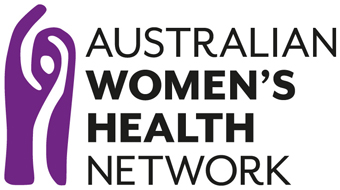Published: Australian Women’s Health Network 2012
Status – CURRENT
Women in Australia have fewer financial resources, less wealth and property, and higher family burdens in the dual economies of paid and unpaid work than their male counterparts. They ensure the reproduction, well-being and survival of others, from newborn to old age, but often lack necessary support and financial independence. There are specific groups of women whose health is significantly compromised by their exposure to risk and social experiences. In particular, the poor standard of health of Indigenous women, refugee women and women with disabilities raises concerns about the capacity of health services to meet their needs. This paper considers the means by which Australian health programs and policy can redress these inequities. It further highlights the inequities for women in relation to non-communicable diseases (chronic diseases). The social gradient, the health sector, and gender are key determinants of health equity for women. The health sector in Australia has a responsibility to improve equity; however, prevailing inconsistencies in its understanding of how gender impacts on women’s health outcomes currently inhibit effective action. The paper argues broadly for recognition of a number of principles essential to establishing a firm basis upon which to redress health inequities for women. [Executive summary, extract]

